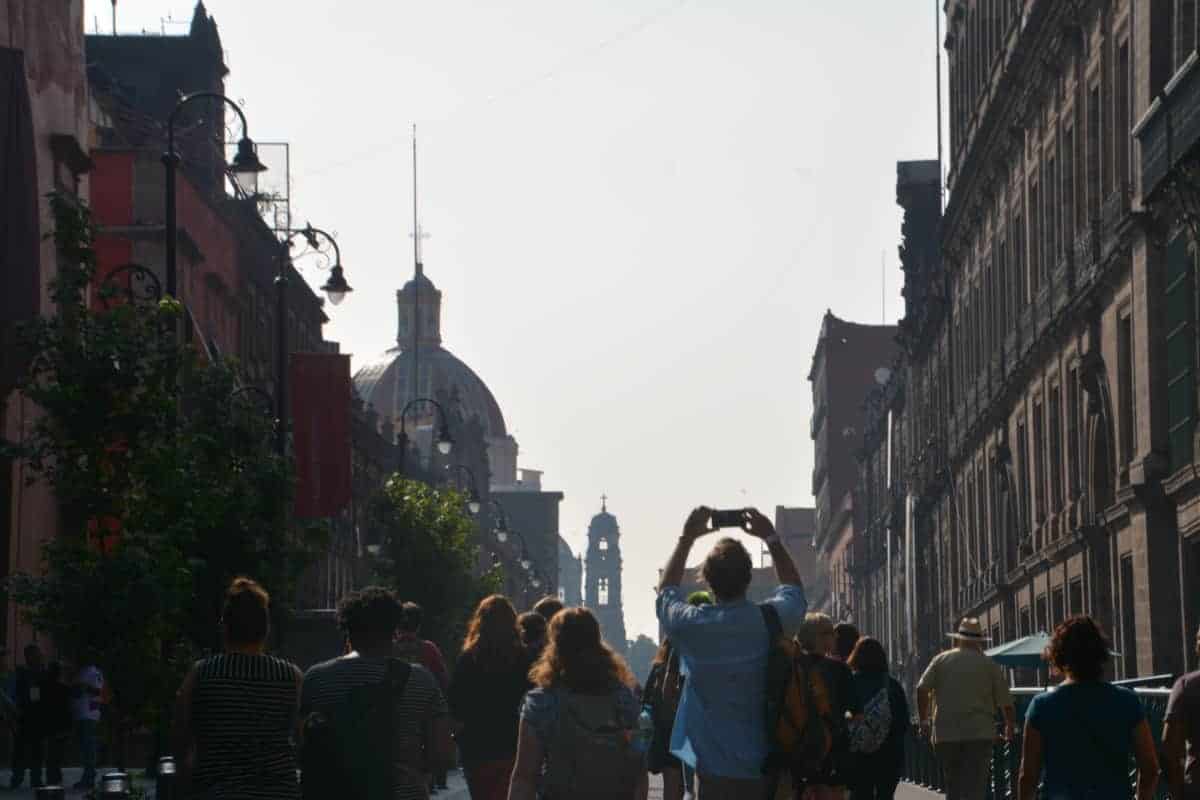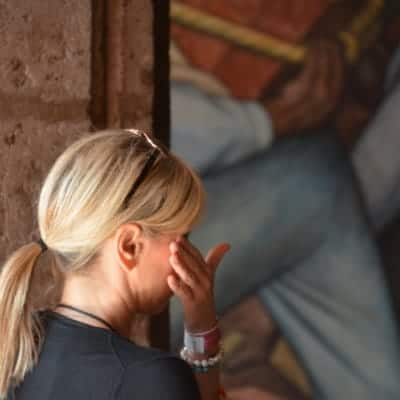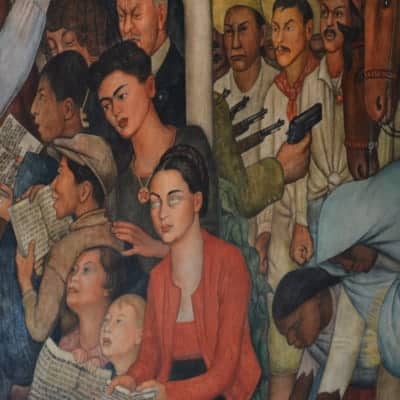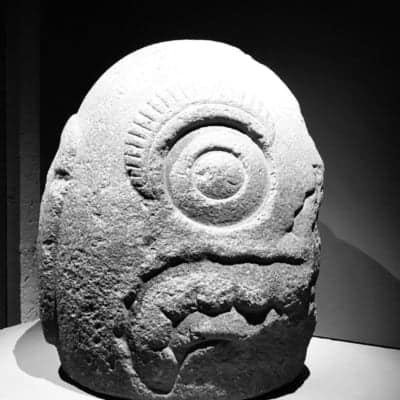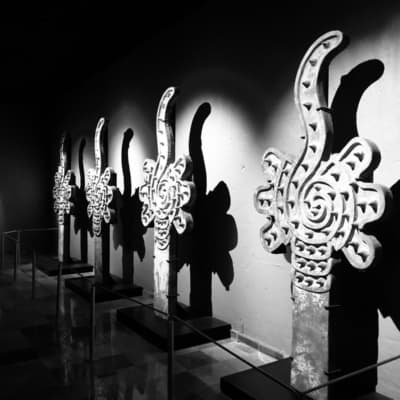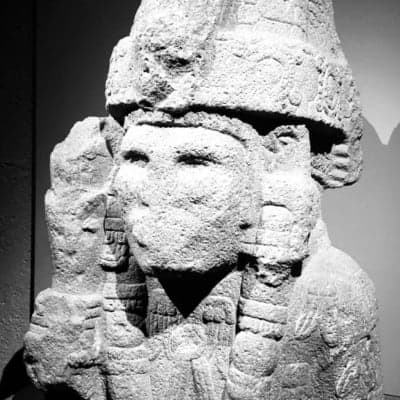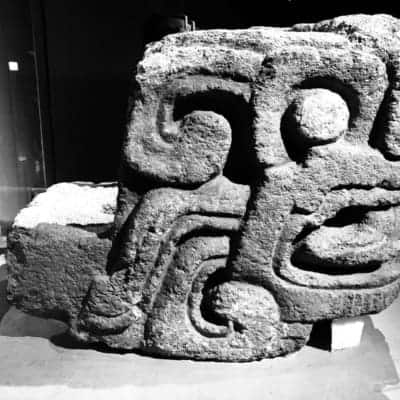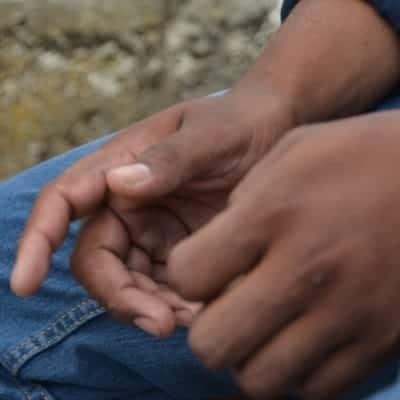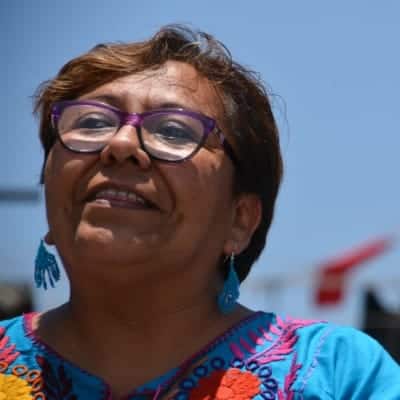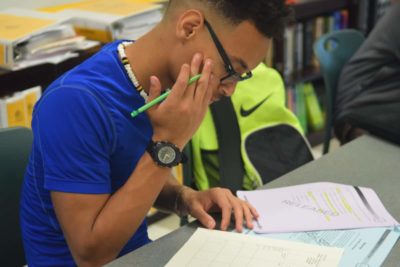Christine Preddy teaches science in 7th grade at A.L. Stanback in Orange County Schools. About 50% of her students are Latinx, and many have Mexican heritage, so she is on our trip to deepen connections with her students. On the way to Mexico, as we wait for the plane at the airport in Dallas-Fort Worth, I overhear her say, “We are learnists.” It’s a term she’d like to trademark.
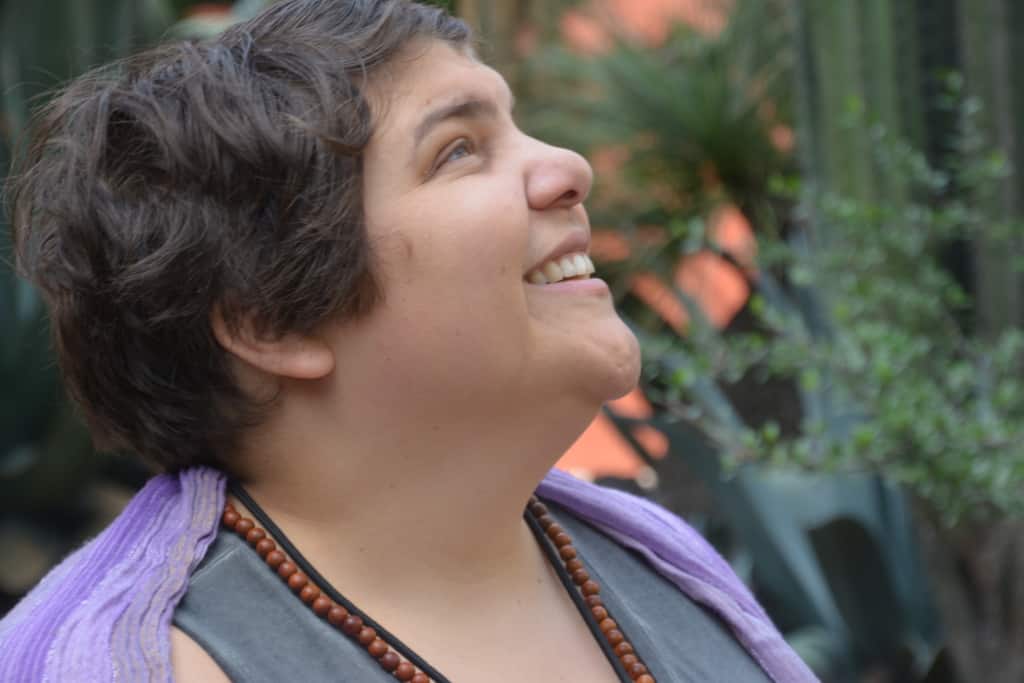
Preddy says, “It’s not unique for teachers to love learning, but it is kind of rare for us to get to do it with so many other teachers. And honestly its kind of soul satisfying.”
My thanks to all of the teachers traveling with me for your public service to our students, our schools, our state, and our future. Here we go! #GlobalTeachers pic.twitter.com/a9RKjYuiEx
— Mebane Rash (@Mebane_Rash) June 15, 2019
“North Carolina and Mexico are intrinsically linked. Of the nearly 900,000 Latinos living in North Carolina in 2016, over half claimed Mexico as their country of origin; Mexico is North Carolina’s second largest trading partner; and Spanish is by far the most commonly taught second language in our public schools. Despite these close cultural and economic ties, how well do we actually know our southern neighbor?” — Go Global NC Orientation Notebook
According to Go Global NC, the trip to Mexico is “a professional development program and an immersive learning experience for K-12 teachers designed to provide participants with a once-in-a-lifetime opportunity to learn about the Mexican education system as it strives to reform. Participants will experience Mexico’s unique history, culture, and environment first-hand while collaborating with other delegation members on ways to incorporate these new global experiences into their own classrooms.”
Getting to know the heart of Mexico
Our first day started with a tour of the neighborhoods in Mexico before settling in to learn all we could about the Historic Centre of Mexico City. The Zócalo is the main plaza and the largest plaza in Central America.
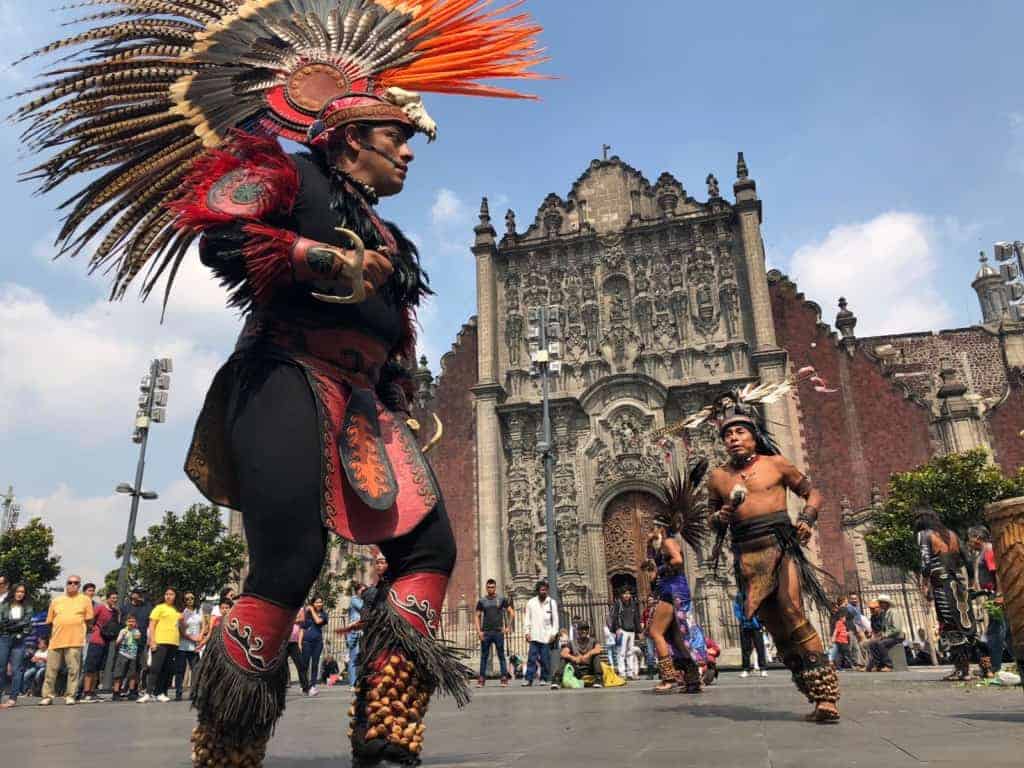
The frescoes of Diego Rivera in the National Palace
At the National Palace, teachers had the opportunity to see the frescoes of Diego Rivera, including his “Epic of the Mexican people,” a triptych documenting three chronological areas: Ancient Mexico, from Conquest to 1931, and Mexico today and tomorrow.
Julie Pittman is a high school English teacher at R-S Central High in Rutherford County Schools and the 2018 Burroughs Wellcome Fund Western Regional Teacher of the Year. She learned about Diego Rivera and Frida Kahlo — their relationship, their talent, their authenticity — when she lived in New York City, and she taught about the artists in her class at NYU.
This year she taught 17 ESL students in a sheltered classroom — a classroom where she taught one subject area so they could focus on content and language acquisition, “like reading writing and speaking,” Pittman says. “I’ve just always thought these two artists could be the way to get my students to understand who they are and have the courage to believe what they want and need to believe. When I bring Rivera and Kahlo’s art into my class, I am also bringing their history and civic understanding.”
Pittman has never been to Mexico. She has never seen a Diego Rivera or Frida Kahlo in person. Seeing the Rivera frescoes against the backdrop of her experience in the sheltered classroom forced her to wrestle with their magnitude — in physical size and importance in art history. She says, “This was one of the most reflective and emotionally important moments of my life — thinking about art, politics, and power, and their relationship to who I have become as a teacher and human advocate. In one moment that fresco bridged all of that, and I learned you can never understand scale and impact — whether it’s a work of art or a moment in my classroom, it can have infinite impact.”
Understanding the age of a culture at Templo Mayor
The teachers also visited and learned about the main temple at Tenochtitlan, which dates back to 1325. Rustina Sharpe is a pre-K teacher at Efland Cheeks Global Elementary School in Orange County Schools. She says, “I really like black and white photographs. I feel like you get a deeper emotional connection to the place.” Her photography captures the beauty of the teachers coming face-to-face with history.
The Ballet Folklórico at Bellas Artes National Theatre
In the evening the teachers saw the Ballet Folklórico perform at the Bellas Artes National Theatre, which included traditional dances, music, and costumes.
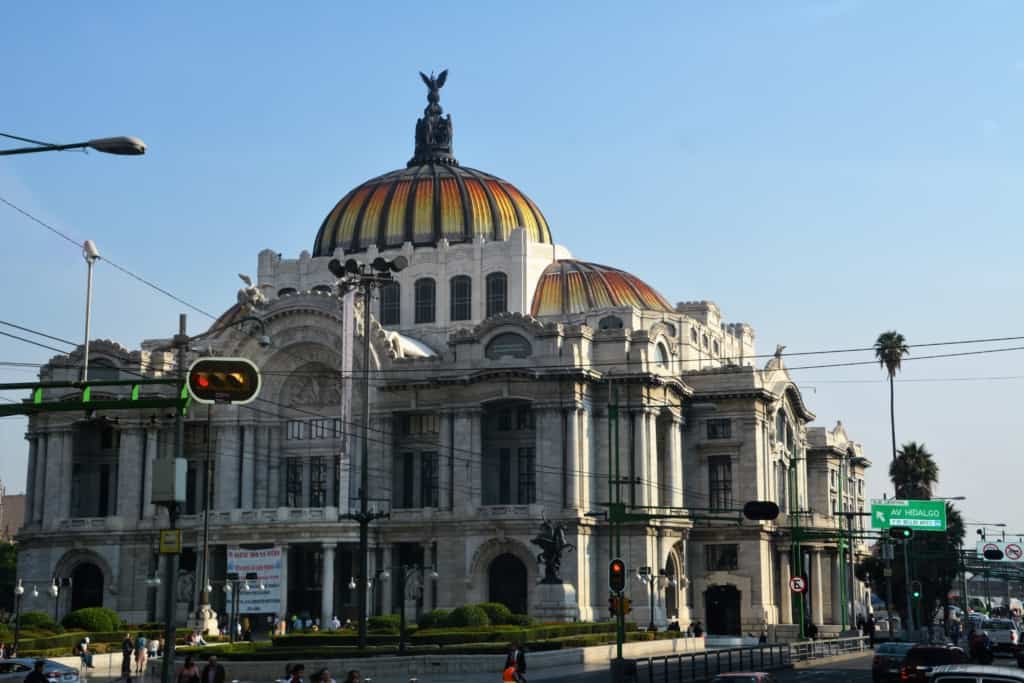

A private school in Mexico City
On the second day of our trip, teachers had the opportunity to learn more about private schooling in Mexico at Colegio Peterson.
Amber Carroll Santibanez, a visual arts teacher at Durham School of the Arts, met with the art team, a highlight for many of the teachers.
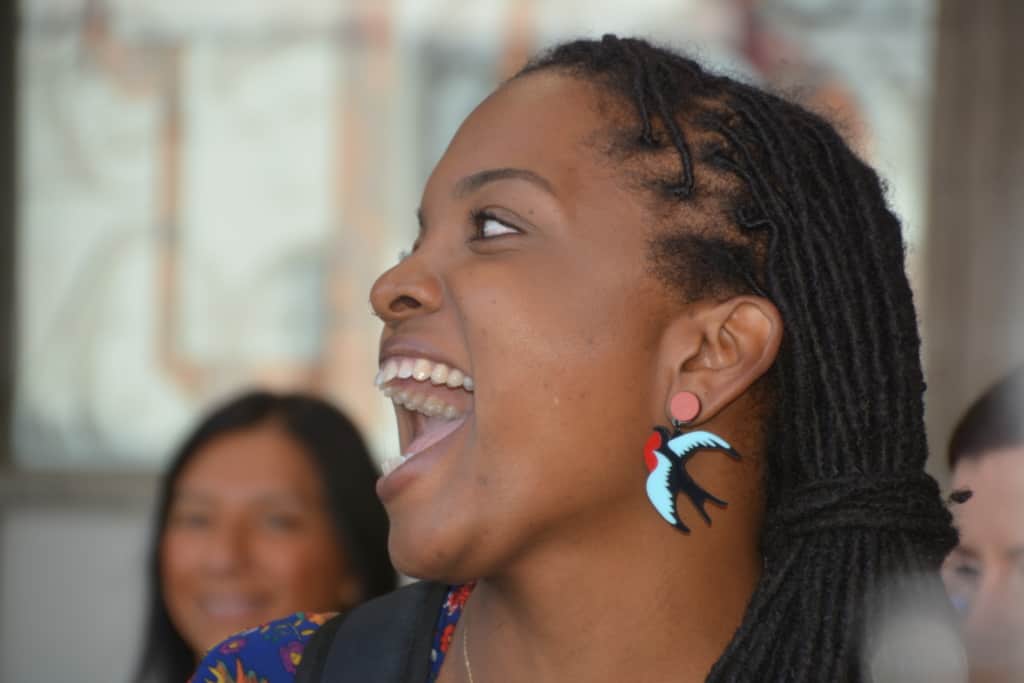
The arts are not for everyone, but the arts help everyone. Students “use the tools for life.” Meet Ginette Zavala, Edgar Canas, and the arts team. #GlobalTeachers pic.twitter.com/0z9ydyefY4
— Mebane Rash (@Mebane_Rash) June 17, 2019
We loved visiting Colegio Peterson – IB school in México ?? ?? #Globalteachers @GoGlobalNC pic.twitter.com/Ud8FpYuRug
— Emily Fɾαɳƈιʂ ? (@emilyfranESL) June 17, 2019
Scenes from a school in Mexico. #GlobalTeachers pic.twitter.com/0OKBCQ2y28
— Mebane Rash (@Mebane_Rash) June 17, 2019
Learning about migrant realities at the Casa Tochan Migrant Shelter
Casa Tochan is a shelter for adult, male migrants that has been open since June 2011. With 30 beds, it provides long-term shelter for two weeks to three months at no cost, mostly for migrants from Guatemala, Honduras, and El Salvador. This painting framed our visit and our learning:
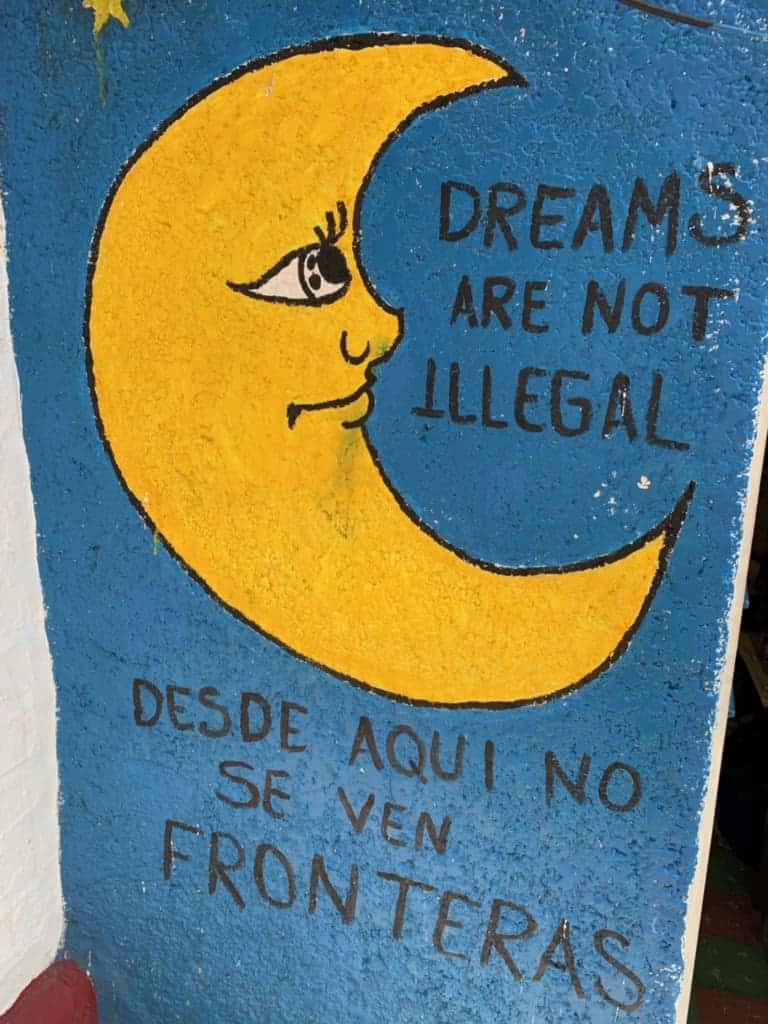
Samone Graham is an assistant principal at Mooresville High School and the 2018 Burroughs Wellcome Fund Southwest Regional Teacher of the Year. She says of our interview with a migrant who fled Honduras on May 20, 2019, and recounted his path to Mexico City, “When I looked into his eyes, they were burning with dreams and hopes.”
Abby Covington teaches fourth grade math and social studies at Millbridge Elementary School in Rowan-Salisbury Schools. She writes, “If you don’t hear anything else from me during my entire trip…if you don’t read another word or look at another picture that I post, read this: These people are human beings.”
Covington continues, “They have a story just like you and I have a story. American culture and media from all sides paints a picture of migration that we interpret and take to be truth, but you will never know the actual truth until you sit at a table with a person and hear their story. There is no person at the world’s table whose story is more important than another. The fabric of our humanity is woven together by these stories.”
One of the migrants told Erin Nguyen, a second-year ESL Teacher at Efland Cheeks Global Elementary School in Orange County Schools, who works with students in K through fifth grade, “I’m not looking for happiness anymore. I’m looking for safety.”
Learn more about the Hispanic/Latinx culture in this presentation at the orientation of our teachers by Krista Perreira, Professor of Social Medicine at UNC, and Dr. Rebecca Tippett, Director of Carolina Demography:
Emily Francis is an English as a Second Language (ESL) teacher at Concord High School in Cabarrus County Schools, and a leader on the Go Global NC trip. “Her experience as an English language learner inspired her to become an ESL teacher,” she writes. After sharing her own experience coming to the United States from Guatemala and the experiences of her students, she asked the teachers to come up with one word leading them to understanding and action.
The words of our #GlobalTeachers reflect the hopes and dreams they have for everything from this trip to the future of their students.
Potential. Awareness. Motivation. Honesty. Disrupt. Grit. Perseverance. Hope. Empathy. Resilience. Opportunity.
Please follow us as we travel throughout Mexico on Twitter @Mebane_Rash @EducationNC @GoGlobalNC #GlobalTeachers.
Our #GlobalTeachers

Tracey Barrett, City of Medicine Academy, Durham
Melissa Breaden, Chapel Hill Carrboro City Schools
Shanna Buckner, West Buncombe Elementary, Buncombe
Jessica Carawan, Belvoir Elementary School, Pitt
Janine Colello, Contentnea Savannah K-8, Lenoir
Abby Covington, Millbridge Elementary, Rowan
Kate Culbreth, Wolf Meadow Elementary, Cabarrus
Kelly Dombrowski, Oakboro Choice STEM K-8, Stanly
Emily Francis, Teacher Leader, Concord High School
Stephanie Gall, Brogdon Middle, Wayne
Beth Giddings, GW Carver Elementary, Cabarrus
Samone Graham, Mooresville High, Wayne
Laura Griffith, Fuquay Varina Middle, Wake
Alex Herzing, Woods Charter School, Chatham
Shannon Holliday, Ranger Elementary/ Middle, Cherokee
Scarlett Joyner, Southern Wayne High, Wayne
Kate Keller, Cane Creek Middle, Buncombe
Lauren Kepke, Enloe High, Wake
Jeff Little, East Albemarle Elementary, Stanly
Angela Lowery, Pinnacle Elementary, Rutherford
Mary Malpass, Union Elementary, Sampson
Angie McClain, Beverly Hills STEM Elementary, Cabarrus
Chelsea McGraw, Union High, Sampson
Freebird McKinney, Walter M WIlliams High, Alamance
Ashley Melendrez, Midway High, Sampson
Casey Myers, Durham School of the Arts, Durham
Jacob Newbauer, Maureen Joy Charter, Durham
Erin Nguyen, Efland Cheeks Global Elementary, Orange
Zach Overcash, Jesse Carson High, Rowan
Donetta Pedroza, Nebo/North Cove Elementaries & McDowell Early College, McDowell
Andrea Perrone, New Hope Elementary, Orange
Julie Pittman, R-S Central High, Rutherford
Christine Preddy, AL Stanbuck Middle, Orange
Colin Richardson, Green Hope High, Wake
Amber Carroll Santibanez, Durham School of the Arts, Durham
Rustina Sharpe, Efland Cheeks Global Elementary, Orange
Latasha Simpson, Rose Hill Magnolia Elementary, Duplin
Amy Thomas, Deyton Elementary, Mitchell
Joanna Tine, Waynesville Middle, Haywood
Shannille Williams, James Kenan High, Duplin
Sharleen Wiseman, Clearmont Elementary, Yancey
Keisha Worthey, East Millbrook Magnet Middle, Wake
About Global Teachers Professional Development Program
Go Global NC’s Global Teachers program, founded in 1991, provides professional development to K-12 teachers from across North Carolina through an in-depth learning experience about the history, culture, and environment of other countries. Programs begin with an intense orientation workshop, followed by an approximate 10-day international immersive learning experience abroad. Several weeks after travel, Go Global NC leads an action-planning workshop, which creates a platform for collaboration and creativity to ensure teachers are prepared to share their global experiences in their own North Carolina classrooms. Teachers from all grade levels and all subject areas use their new global experiences to ignite an interest in global engagement and cooperation among their students and in their communities.
About Go Global NC
Go Global NC, part of the University of North Carolina System since 1979, designs and manages programs that build the capacity of policy leaders, educators, students, and business and community leaders to enable North Carolina to succeed in a global economy and increasingly interdependent world. Visit Go Global NC to learn how Go Global NC connects North Carolina and the world.
About Via International
Via International is a 501(c)3 non-profit organization with 40 years of experience engaging people to participate in community development initiatives. Their focus is to improve quality of life by providing educational and transformational experiences to connect people to community development work through voluntourism and civic engagement. Via International is Go Global NC’s trusted partner on this program helping to provide unique local access.
